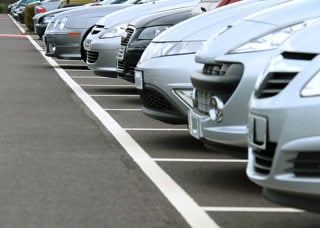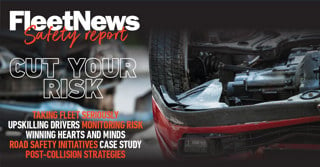Jon Mackney, head of consultancy, Arval
Among others, the Energy Saving Trust has recently said that grey fleet is among the least well managed areas of business travel, and in many instances I have to agree.
Despite the issue having moved up the fleet agenda in recent years, there are still a large number of organisations that aren’t taking the necessary action to effectively manage this area of business travel.
Ten years ago, there was often a lack of awareness, with many organisations failing to recognise the issues associated with grey fleet, let alone having policies in place to manage it.
However, in recent years there has been a wave of publicity focusing on grey fleet and its impact on cost, duty of care and the environment.
The grey fleet is a complex area to address, we know, having spent three months producing our grey fleet calculator to tackle it.
So it is understandable that many companies haven’t been able to get an effective grip on it, in many cases suffering from a lack of visibility around what drives cost and where risk resides.
Despite these complexities, it is not an area that can be ignored.
Fleets spend a great deal of time and effort on their company car drivers; checking their licenses and insurance, training them and ensuring that their vehicles are fit for purpose, well maintained and efficient.
However, business drivers using their own cars generally don’t come under anywhere near the same levels of scrutiny and we know that many grey fleet drivers travel in vehicles that are inefficient, incorrectly insured and not fit for purpose.
So if they aren’t already doing it, companies must be urged to review, understand and address their grey fleet.
Where relevant, they should replace the grey fleet with appropriate alternatives, which may include company cars, rental vehicles and pool cars.
Where it is judged commercially justifiable to use grey fleet for occasional business travel, it is essential that the management of these drivers and their vehicles is more consistent with that of a company car driver in terms of the checks that are made on them and their vehicle and the support provided.



















Graham - 10/04/2017 07:57
Personally I have my own vehicle, a 14 plate fully maintained car with business usage insurance. My car has all modern safety features including lane assist, adaptive cruise, and is fitted with seats that have multiple adjustments and two stage lumbar support. I replace my tyres with original equipment and have it serviced at a franchise dealer. My company car provided on my current high mileage contract has no sat nav, no lumbar support, basic seats, no lane assist, no adaptive cruise control and runs on the cheapest tyres that can be sourced by the leasing company with mixed tyres across axles and front to back. These tyres can be changes at the legal limit whereas on my own car I change them as soon as they fall below 3mm in winter and 2.5 mm in summer. Obviously I do zero personal miles in the company car, not even stopping to pick up a bottle of milk or newspaper on the way home and yet I am hammered with BIK for a benefit that I do not have.